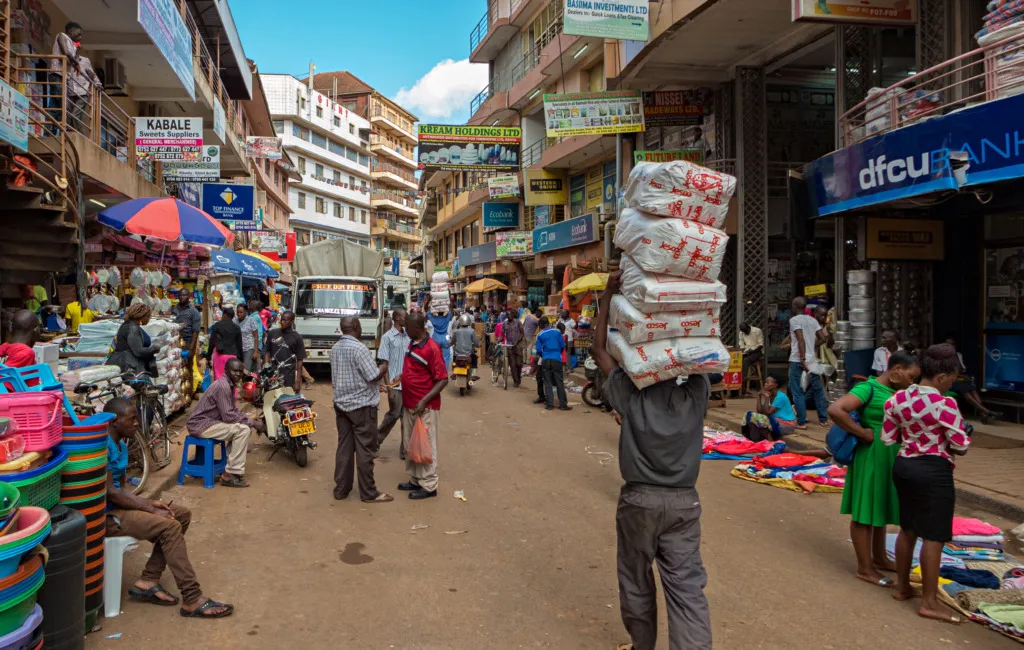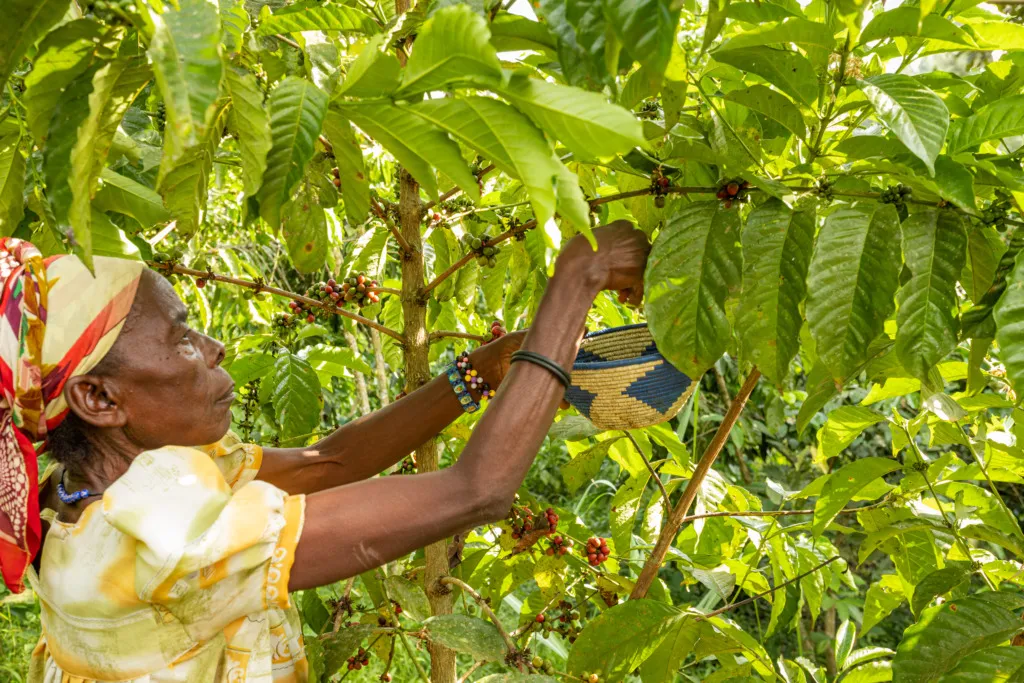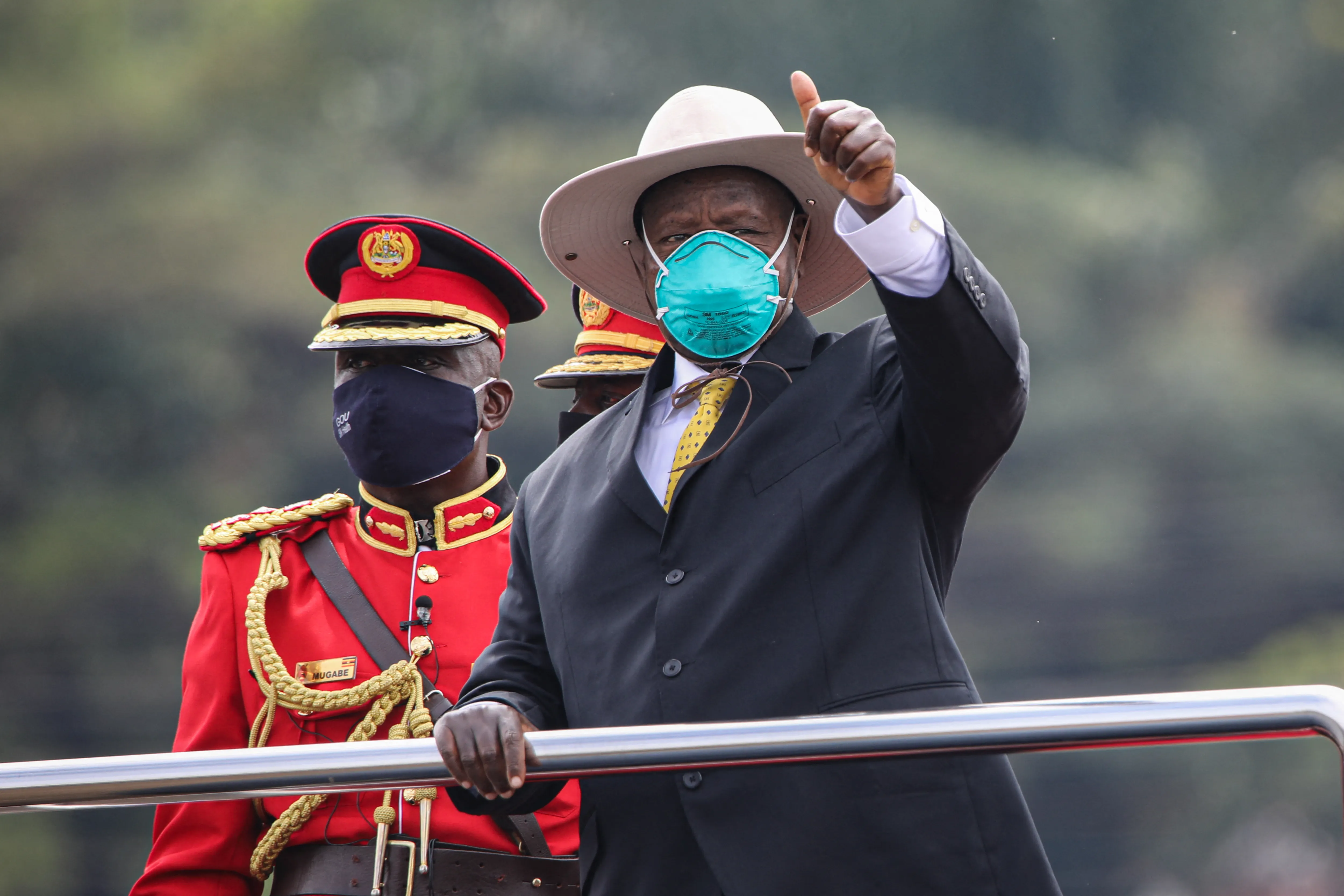One way to understand the state of Uganda’s economy is to ask its informal workers. Judith Ntamba walks door-to-door in Kampala selling bushera, a sorghum and millet drink; she now sells less than 5 litres a day, when she once sold 20.
Clovis Tumulamye gets through four bags of flour at his chapati stall, rather than 12. Nelson Mutaawe Hassan, who cuts and paints nails on the street, says there is less business now that a curfew stops people going out partying.
The immediate problem, of course, is Covid-19. But even before the pandemic Ntamba could not afford a fridge to keep her drinks cool, Tumulamye could not find stable work and Mutaawe was stuck for options when he finished school. They testify to an economic model that has not brought industrialisation or created enough jobs.

In the first decades of President Yoweri Museveni’s rule the economy grew rapidly. Its direction was influenced by two groups: a cluster of free-market technocrats, who made Uganda one of the most liberal economies in Africa, and the networks of powerful individuals around the president, who bent the rules to their advantage. This combination of economic openness, ruthless accumulation and foreign aid drove output upwards.
With time, the shortcomings of that model have become more evident. Growth rates have slowed, popular frustration is swelling, and institutions are distorted to preserve Museveni in power. Some in government urge a more active industrial policy to drive economic transformation. But is it too late to change course?
Neoliberal experiments
As a young man, Museveni espoused the kind of left-wing nationalism that was common among African revolutionaries of his generation.
But he led his rebel army into Kampala in 1986 at exactly the moment when the space for that politics was closing. The IMF and World Bank were pushing structural adjustment policies, forcing indebted African states to embrace the free market. Within four years the Berlin Wall had fallen, and neoliberalism seemed the only game in town.
The economy that Museveni inherited was in a mess. He soon became convinced that “inflation is indiscipline” – the worst sin in the eyes of a military man. Spending was reined in, tariffs were cut, public enterprises were sold off, agricultural marketing boards were dismantled, and the shilling was allowed to float to its market rate.
Reforms were led by technocrats of calibre in the finance ministry and central bank, which developed reputations as “pockets of effectiveness”.
They built an economy that worked – for some. Since 1986 landlocked Uganda has attracted more foreign direct investment than Kenya, an economy twice its size. Multinational companies have rushed into sectors such as banking and coffee.

Local tycoons, many of them returning Ugandan Asians, have built sprawling family-run conglomerates covering everything from sugar and steel to hotels, finance and real estate.
For ordinary Ugandans too, some things got better. More children are in school, and fewer are dying. Life expectancy has risen from 44 years in 1995 to 63 today. Extreme poverty has tumbled.
But this is still an economy on the periphery of global capitalism, where the real value is added elsewhere. Almost all of Uganda’s coffee, its second-biggest export, leaves the country unprocessed. Even before Covid-19 only two-thirds of installed processing capacity was being used in the dairy industry, less than one-third in fisheries, and just 40% in coffee.
Meanwhile the most celebrated manufacturing companies carry out only the final stages of production: putting imported pharmaceutical ingredients into tablets, shaping steel coils into iron sheets, or assembling buses with Chinese-made kits.
“There are no backward and forward linkages,” argues Muwanga Kivumbi, the shadow finance minister. “What is growing as an industrial base is assembly plants for Chinese and other Asians and Europeans that simply come here to set up factories for tail-end production for on-sale to the market.”
Instead of production, much of the economy relies on extraction of natural resources, from sand mining in wetlands to the depletion of fish stocks on Lake Victoria. The country has lost a third of its forest area since 1990 and is cutting down trees at one of the fastest rates in the world. Some 41% of Uganda’s soil is now degraded, according to the World Bank. The biggest export is smuggled Congolese gold.
Nearly three-quarters of workers remain in agriculture. Many of the rest toil in petty manufacturing and informal services, from roadside carpentry to hawking fruit.
The economy creates jobs for barely a tenth of the 750,000 Ugandans who reach working age each year. Very few can afford affluent lifestyles: the South African retailers Shoprite and Game, which target the consumer class, are both leaving the country.
“Neoliberalism was not able to transform the Ugandan economy into a high value-added manufacturing economy,” says Julius Kiiza, a political economist at Makerere University. “The fundamental question is the quality of growth.”
“Shadow state”
This is an economy where everyone is a hustler, but some are bigger hustlers than others. Those with connections can secure jobs and contracts, or just loot the public purse.
“Corruption is what sustains the current regime in power,” says Cissy Kagaba, executive director of Anti-Corruption Coalition Uganda, a civil society group. “People may know who the ‘mafias’ are but they are highly connected and no action is going to be taken.”
A recent report from Democracy in Africa, an academic website, describes “a pervasive shadow state” built by military officers and Museveni’s extended family, which dominates vital sectors of the economy. Independent businesspeople are incorporated into these fluid networks through tax breaks and other incentives.
The report notes that “those who have proven their political loyalty and usefulness may be given a free hand in business, enjoying impunity for large-scale corruption and other crimes”.
The rigging of the economy has fuelled opposition to the regime: first from disenchanted members of the elite like Kizza Besigye, a former soldier, and more recently from the singer Bobi Wine, who embodies the frustrations of “ghetto youth”.
Museveni has responded by violently crushing protests and turning the state itself into a patronage machine, run through late night meetings at State House.
Erstwhile pockets of effectiveness like the finance ministry, central bank and tax authority “have become increasingly entwined with the politics of regime survival”, argues a recent paper by Sam Hickey of Manchester University, Badru Bukenya of Makerere University, and Haggai Matsiko, an independent journalist.
Most notoriously, a spending splurge before the 2011 election, financed in part by the reissuance of old notes, caused inflation to soar; as security forces shot protesters on the street, the central bank hiked interest rates to punishing levels to bring prices under control.
Policy shift
That year marked a quarter century of Museveni’s rule, and an economic turning point. Before 2011, income per person grew at an impressive annual average of 3.3%. In the years since it has crept up at an anaemic rate of 1.1%. Poverty reduction has stalled.
What changed? Adam Mugume, director of research at the Bank of Uganda, lists four factors: unpredictable weather patterns, which have stymied agriculture; a relative decline in foreign aid; the destabilising effect of the election cycle; and rising corruption, such as “public investments that are not based on economic values but are based on political aspects”.
Those problems have been compounded by Covid-19. Although some lockdown measures have been eased, a dusk-to-dawn curfew is in place and schools remain closed for most students.
The service sector, including tourism, “is still really depressed”, says Mugume. He anticipates only a “gradual recovery” with growth of around 3.5% this financial year – or virtually nothing in per capita terms.
“Covid-19 has brought out the high level of inequality within the country,” says Madina Guloba of the Economic Policy Research Centre, a think-tank. Perhaps 2.6m more people have been plunged into poverty by the pandemic.
Meanwhile the crisis is accelerating a shift in economic policy. The third national development plan, published last year, urges “revisiting the development approach, in particular the role of government” and advocates “industrial policy and the construction of a developmental state”. New industrial parks and the recapitalisation of the state development bank are both seen as steps in that direction.
So too is the appointment of economist Ramathan Ggoobi, an advocate of industrial policy, as the top civil servant in the finance ministry. “There are really clear signs of a policy reversal now, in terms of getting away from the Washington Consensus,” Ggoobi told African Business last year, before taking on the job.
Now, in a written response to questions, he says that industrialisation is “a top priority, with government playing a greater role”, although “the private sector remains the engine of growth”. He lists measures to drag the economy out of the Covid-19 slump, from a recovery fund for small businesses to labour-intensive public works.
Ugandan policymakers are also influenced by political currents in China and the US, says Kiiza, the political economist. “When a poor country like Uganda sees now the headquarters of free-market capitalism going nationalistic, going pro-mercantilist, then we say: ‘Wait a minute, it’s possible the gospel that was being pushed to us by the US was the wrong gospel.’”
The policy shift faces resistance from old-school technocrats. It must also wrestle with the political distortions that have undermined past interventions. Schemes such as Operation Wealth Creation, an army-led programme of agricultural development, and Emyooga, which disburses cash to hastily-formed co-operatives, are both seen as vehicles for patronage.
An active state also costs money, of which there is precious little to spare. The fiscal deficit is nearly 10%. Although Covid-19 is partly to blame for the shortfall, so too was an election-related surge in security spending, which has tripled in real terms over the past four years.
The government routinely uses supplementary budgets to top-up its kitty. More of that money has gone into classified expenditures by the army or State House than to the direct Covid-19 response.
Public debt will climb above 50% of GDP this year. By 2022, debt service will consume more than 70% of government revenues.
“Borrowing in itself is not bad,” says Francis Kamulegeya, senior partner at PwC Uganda. “What’s concerning is that it takes such a long time to deploy that money into meaningful assets.” Nearly half the projects in the government’s second national development plan had not even started by the time its implementation period ended.
A $1bn credit facility with the IMF will avert an immediate debt crisis. As Ggoobi points out, Uganda’s debt “remains among the lowest in the East African region”.
He argues that efficiency savings and the mobilisation of domestic revenues can help plug the gap. But the government’s insatiable appetite is gobbling up credit that could have gone to private businesses, who borrow at eye-watering average interest rates of 18%.
The cost of finance “is probably the biggest impediment right now”, says Patrick Bitature, a prominent businessman with interests from mobile phones to hotels.
A million crises
Bitature, a supporter of Museveni, is nonetheless optimistic that investments in infrastructure have laid the ground for the next phase of growth.
It is a view shared by others in the business elite, who reel off reasons to be cheerful. Coffee exports are at record volumes, helped by good rains and the distribution of seedlings. A long-delayed dam across the Nile is nearing completion. The South African telecoms giant MTN is preparing to list 20% of the shares in its local subsidiary, in what could be the largest ever initial public offering on the Uganda Securities Exchange.
The biggest prize of all is the 1.4bn barrels of oil which lie around Lake Albert. The long-delayed project faces civil society opposition due to social and environmental concerns, and needs prices to stay above $50-60 per barrel to break even. But it is also expected to bring $15-20bn of investment over the next few years, with first oil promised for 2025.
“Now we’re starting to see some real activity on the ground, real contracts being awarded,” says Patrick Mweheire, regional chief executive of Standard Bank and chairman of the Ugandan Chamber of Mines and Petroleum.
Yet like everything else in Uganda, these developments could be overturned by a chaotic transition at the top. Museveni, now 77, has not prepared for a smooth succession, as even some of his admirers admit.
“If anything happened to him, God forbid, then we’re in trouble as a country,” says Bitature. “The structure below him is just not strong enough.”
Meanwhile, for the harried workers of Uganda’s informal economy, life is already tough enough. This might not be an economy in crisis, but millions of people face a daily struggle just to make ends meet.
Want to continue reading? Subscribe today.
You've read all your free articles for this month! Subscribe now to enjoy full access to our content.
Digital Monthly
£8.00 / month
Receive full unlimited access to our articles, opinions, podcasts and more.
Digital Yearly
£70.00 / year
Our best value offer - save £26 and gain access to all of our digital content for an entire year!
 Sign in with Google
Sign in with Google 



